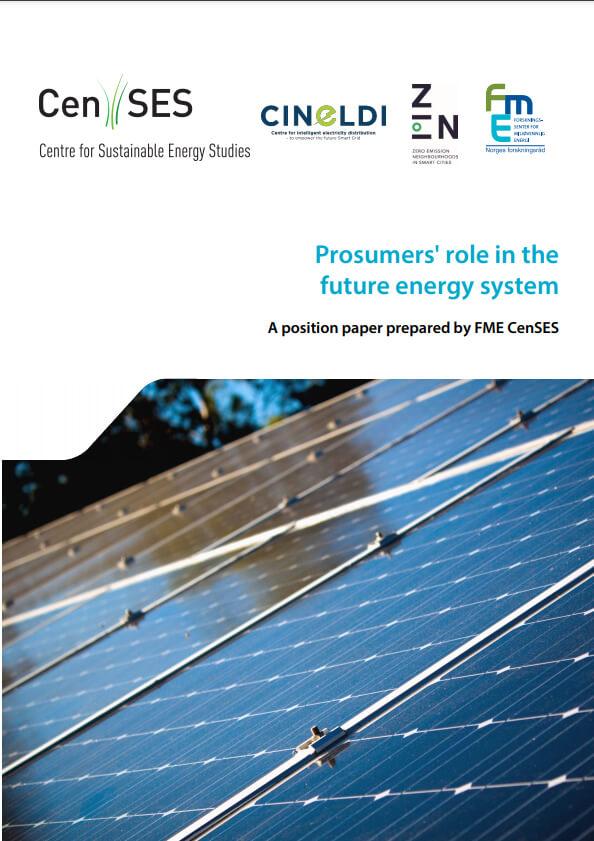Prosumers' Role in the Future Energy System
Prosumers' Role in the Future Energy System
This position paper was published by FME CenSES.
Prosumers are people who consume some of the goods and services that they themselves produce. The supply of electric energy and flexibility services are two distinct services needed in all power systems. The prosumers considered in this document generate at least one of type of power supply, for example through solar panels installed on the roof of their house or by a battery in their basement.
This document gives a historical and qualitative overview of prosumers, insights into optimization of prosumers’ local energy systems, analysis of relevant regulation and incentives and tariffs, an overview of technical considerations for grid connection for own production, and quantitative simulations of energy system impacts.
The main findings can be summarized as follows:
- Existing prosumers in Norway have been motivated more by environmental concerns, technological interests, and self-consumption than by economic incentives.
- Smart meters have lowered the threshold for becoming a prosumer.
- Return on investments has been low for prosumers.
- Currently, batteries are not a cost-effective technology to lower peak electricity demand. It is less expensive to utilize flexibility in ventilation, electric boilers and heating. PV production (i.e. solar panels) within Oslo will reduce the need for transmission grid expansion to the city to a very little extent.
- A capacity-based grid tariff, which has been suggested by the Norwegian Water Resources and Energy Directorate (NVE), will make it less profitable to invest in solar panels, and will give stronger incentive for flexibility. Wind power and PV as types of varying renewable generation are complementary technologies for demand response. Additional amounts of one of them will increase the value of the other. Additionally, demand response will lower the need for backup electricity generation capacity. Different types of varying renewable generation are substitutes.
- In the EU and the EEA, national regulations for energy solutions in buildings should promote cost-efficiency. NZEBs are promoted, but it is not clear how they should be defined or how they should be handled if they do not become cost-effective should be handled.
- The local distribution system operator (DSO) should be involved in the process when a customer wants to invest in a PV panel, to avoid instabilities in the electricity supply for the surrounding area.
- One of the main barriers for new prosumer business models is the lack of or immature regulatory frameworks, which might be a consequence of the lack of experience of large-scale market integration of prosumers.
Download Position paper: Prosumers’ role in the future energy system
